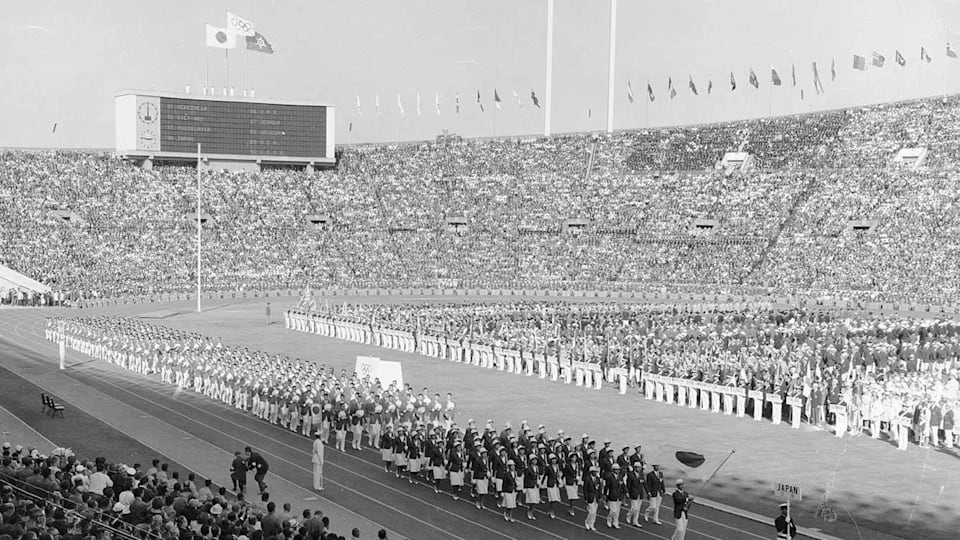Remembering Tokyo 1964

On this day 55 years ago, all eyes were on Tokyo as it welcomed the world to the city with the Opening Ceremony of the 1964 Olympic Games.
It was the first time the Games had been staged in an Asian city, helping to showcase modern Japan to the world.
5,133 athletes from 93 nations gathered in Tokyo and demonstrated their exceptional abilities across 163 Olympic events in 20 sports. Judo and volleyball made their first appearances at an Olympic Games, while women’s pentathlon was also added to the athletics schedule.
History in the making
The 1964 Games was historic, as Tokyo became the first Asian city to host an Olympics, with the Games themselves not only having a profound impact on the sporting landscape of Japan but multiple aspects of life.
While the Opening Ceremony was an exciting affair with fireworks, balloons and Japanese culture on display, one of the most memorable moments came when torchbearer Yoshinori Sakai climbed the stairs to light the Olympic cauldron.
Sakai was born in the city of Miyoshi, on the same day the atomic bomb exploded over Hiroshima, just 60km north of his hometown. However, the talented runner, who went on to win gold at the 1966 Asian Games, would never participate in an Olympic Games.
It was a successful Games for Japan and among the biggest wins for the home nation was the women’s volleyball team’s historic straight-set victory over the USSR to clinch the gold medal. Another notable victory was freestyle wrestler Osamu Watanabe’s gold, which capped off a remarkable career that saw him undefeated in competition.
Meanwhile, Takehide Nakatani also created history by becoming the first ever Olympic Games gold medallist in judo.
For those who watched the Games, they will remember marathoner Abebe Bikila repeating his Olympic gold from Rome 1960, while American Billy Mills, who wasn’t fancied as a runner, won the USA’s first and only Olympic Games gold in the 10,000m.
More history to be made in Tokyo
The Tokyo 1964 Games completely transformed Japan and, with less than 300 days until Tokyo 2020, the country is set for another historic and transformative Games.
Tokyo will host the Summer Olympic Games for the second time, making it the first Asian city to do so.
However, the number of athletes and nations has grown significantly since 1964, with over 11,000 athletes from 206 nations expected to descend on Tokyo next summer.
Athletes will compete across 339 events in 33 sports, with four new sports being added to the Olympic programme: karate, sports climbing, skateboarding and surfing. Additionally, baseball/softball makes its long-awaited return to the Olympic stage after a 12-year absence.
The Games will also be the most gender balanced in history with female athletes making up 49 per cent of competitors.
Fans attending next year’s Games won’t have to look far for reminders of 1964, with five venues being reused at Tokyo 2020 including Yoyogi National Gymnasium, Nippon Budokan, Equestrian Park, Tokyo Metropolitan Gymnasium and Enoshima Yacht Harbour.
Tokyo will also offer a unique welcome to athletes, coaches, families and fans coming to the city for the Games: omotenashi, which can be defined as Japanese hospitality. Omotenashi is unlike anything visitors would have experienced before, with Japanese citizens greeting guests with open arms.
Tokyo 2020 wants to promote change throughout the world and leave a positive legacy for future generations.
